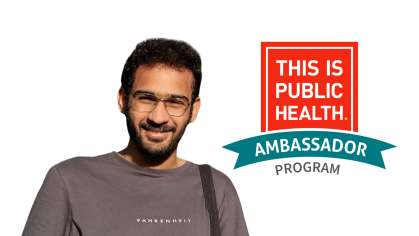Abanoub Armanious is a first-generation student whose path to higher education has been shaped by resilience, determination, and overcoming obstacles.
Armanious — an accomplished Master of Science student at the Rutgers School of Public Health and a researcher at the Rutgers Brain Health Institute — is passionate about advancing public health through innovative pharmaceutical research.
We sat down with him to discuss his experiences, which not only fueled his success but also served as a powerful reminder of the unique perspectives that first-generation students bring to public health.
What does being a first-generation student mean to you, and how has it shaped your journey?
I carry the label of a first-generation student because neither of my parents hold degrees, but the reality runs deeper. Alongside being a full-time master's student, I juggle two jobs and endless responsibilities to survive, not to live.
Imagine others like me—first-generation students who were not handed resources or parental guidance that others often take for granted. We move through life tackling one issue after another, usually problems outside of our control that somehow end up on our shoulders.
This path is exhausting and has forced me into an independence complex, driving me to rely on myself even when the burden is too heavy, but, with each step, I am carving out a future that was not guaranteed. A future shaped by each hard-earned achievement.
How do you view your role as a first-generation student in the field of public health?
I now have a strong voice that feels unshakeable. What could have held me back fuels my drive to pursue my graduate education in public health, and while I am doing so for my growth, I am grateful that my journey can also show other first-gen students what is possible.
We can thrive in these spaces because our perspectives matter. However, we must learn to advocate for ourselves by demanding a seat at the table in spaces not built with us in mind. If the table is not ready for us, we have the resilience to build our own chair—or, if necessary, our own table, ensuring our voices are heard.
Every first-gen student has the right to claim their place and push for the opportunities they need to succeed on their own terms. Our presence is affirmed by each step we take forward.
Why is representation important in public health?
We are not here to be included for the sake of diversity or to just fill seats. We are here to bring lived experiences grounded in real struggles others often overlook.
Representation matters when it informs policy, shapes programs, and ensures that the systems we engage with reflect the needs of those historically left out or ignored.
It is not enough to be seen; we must be heard and valued for the insights we offer because, without that, the spaces we occupy will never truly change.


